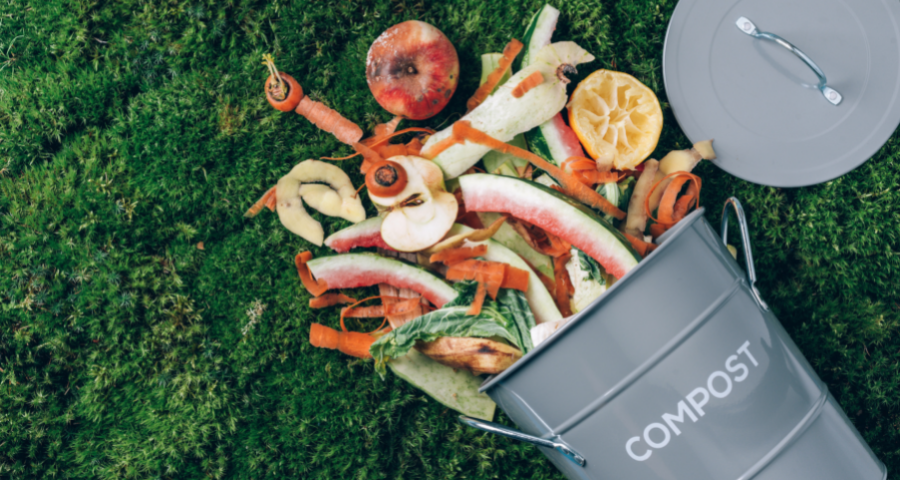Last week was The International Day of Awareness of Food Loss and Waste - a day the United Nations has reserved as “an opportunity to call to action both the public (national or local authorities) and the private sector (businesses and individuals), to prioritise actions and move ahead with innovation to reduce food loss and waste towards restoring and building back better and resilient-ready, food systems.”
As a young person, I think it’s so important that this topic is getting the attention it deserves because food loss and waste (FLW) is a major contributor to climate change, economic degradation and worsening human health. But I am also reminded about the exciting innovations and initiatives that have emerged in response to this crisis. And now is the time to act: we are more than half way through the Decade of Action on Nutrition, we only have nine harvests until the Sustainable Development Goals deadline, and we have the potential to build on the momentum from the UN Food Systems Summit as we prepare for the Nutrition for Growth Summit in December. FLW prevention, mitigation and solutions provide immense hope and promise for the future of food and nutrition security.
I want to take some time to reflect on Food Loss and Waste Day, and talk about what I see as the way forward to tackle the challenge of FLW. In my view, we need to employ a more circular economy approach to the food system - this will help to reduce carbon emissions from FLW, minimise landfill inputs and make more nutritious food available to more people. The Ellen MacArthur Foundation is an incredible resource for all things related to circularity, but I would highly recommend their topic page on the circular economy for food. They set out regenerative agriculture and eliminating food waste as the two key components to a circular economy of food:
- Regenerative food production means growing food in ways that generate positive outcomes for nature such as healthy and stable soils, improved local biodiversity, improved air and water quality.
- Eliminating food waste prevents food waste, redistributes surplus edible food to people who need it and inedible food by-products and human waste becomes inputs for new products.
Essentially, circular economies strive to ensure that items stay in use, nutrients are recycled and waste is nonexistent - and they have a great deal to offer as we search for ways to sustainably support ourselves in the age of climate change. An important aspect of circular economies for food systems is the importance of building natural capital and allowing nature to best do its thing, and I love that.

The circular economy model is a great approach to food systems, but it’s important to remember that it will look different in different parts of the world because each locale is faced with its own unique characteristics and challenges. In addition to the environmental and economic benefits of circular economies, in food systems this should also mean less food is lost and wasted and more food gets to people who need it. Especially nutritious, perishable foods that might otherwise go unconsumed.
Two of my favorite examples of FLW initiatives are youth-led food recovery initiatives. The Farmlink Project is combating hunger and healing the planet by moving excess produce that would otherwise rot and produce GHG emissions from farms and bringing it to communities in need. The Food Recovery Network is a chapter based organisation that operates out of college campuses to recover excess prepared foods from dining halls to bring them to nearby communities in need. I've volunteered with the Food Recovery Network at Cornell and it's been incredible to see different groups of students working together to bring excess food to local food pantries and distribution facilities. This work on FLW is really important, especially in the US where so much food is wasted at the retail and consumer level. I have faith in the future because of organisations like these that are predominantly being spearheaded by young people.
Additionally, the youth led campaign Act4Food Act4Change has specifically identified “Retailers and food businesses must reduce food waste” as one of their 17 actions to be taken to secure sustainable food system transformation. This action goes hand-in-hand with SDG Goal 12.3: To halve global per capita food waste. Champions 123 - a coalition of executives from governments, businesses, international organisations, research institutions, farmer groups, and civil society - has some great resources on FLW, including annual reports on progress towards this global goal.
Though the organisations I’ve mentioned here are more focused on the consumption side of food waste, there are many examples of how governments, businesses and civil society are working together across all segments of the food system to tackle FLW. To make more progress, we also need to shift the dialogue away from simply producing more food to addressing the flaws in our food system that allow food to rot on farms and in landfills, while so many people remain hungry and malnourished.
If we really want to eliminate food loss and waste we will need to rethink our approach to circularity and reconsider how we grow and consume food, including policy, energy and infrastructure that is needed to support this. Food Loss and Waste Day reminds us that our food system is broken but I remain hopeful that there is also opportunity for positive change, for our people and our planet.
